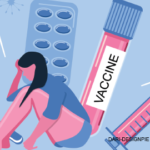How are rheumatology professionals affected by the physical distancing and other challenges presented by COVID-19? The Rheumatologist interviewed Adena Batterman, MSW, LCSW, senior manager of inflammatory arthritis support and education programs at the Hospital for Special Surgery, New York, to discuss how the pandemic has changed the way she and her staff maintain continuity of care for their patients.
Q: How are you and your staff adapting to the changes brought about by the COVID-19 pandemic?
As the hospital’s response to New York City’s needs regarding COVID-19 has evolved, more and more rheumatology patients have been accessing non-urgent services via telemedicine. Still, there are essential rheumatology services in place for our patients who need to be seen on site. In our hospital, social workers are essential personnel and continue to be available to address the essential psychosocial needs of patients in person or virtually to help them manage their conditions through this crisis.
In our department, some staff members are working from home, while others are on site on a rotating schedule, depending on patient need. To support our staff, our hospital is providing childcare benefits to employees working on site and at home—[aiding] employees with children or those in caregiving roles to elderly loved ones—and [providing] transportation for staff, if their commute is affected by social distancing guidelines.
Our rheumatology social workers have developed long-term relationships with many of our patients. This is challenging work, physically and emotionally, especially when so many of our patients are in a state of crisis. We are all, as individuals, professionals and a country, experiencing this trauma together. We all have families, friends, colleagues and loved ones who we worry about, and we’re all trying our best to process this [pandemic] and stay grounded.
One universal theme, I think—for all my colleagues right now—is the concern that we are keeping our families safe and taking care of ourselves, while also being present for and taking care of our patients’ needs and concerns. An essential support throughout this [crisis] is the leadership in our department and our hospital. There is transparent and frequent communication, and the sense that, together, we are committed to caring for our patients, communities and staff.
Q: How are you using telemedicine or other technology right now?
The Hospital for Special Surgery has many well-established, disease-specific support and education groups. We needed to ensure these supportive communities continued to be available to our patients, especially now. It’s been a quick learning curve. We have now transitioned all our support and education groups and patient education lectures to virtual platforms—all in a matter of weeks. Our clinical social workers and group facilitators have now had the experience of running virtual group sessions with excellent patient participation.




